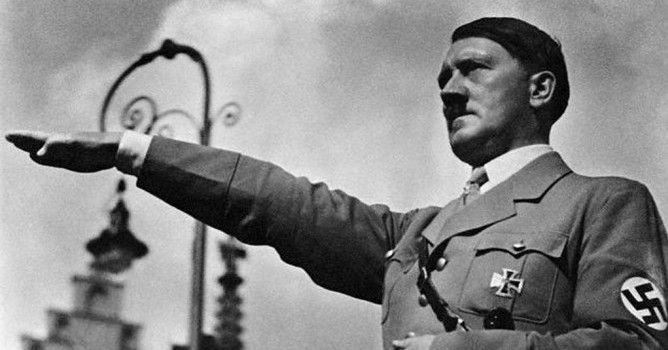 Let me begin by making it absolutely clear that I am in no way an apologist for Nazism or for Adolf Hitler and for the heinous crimes committed in 1930s Germany and during the 1939-45 World War, not least the genocide of millions of Jews in eastern Europe and elsewhere.
Let me begin by making it absolutely clear that I am in no way an apologist for Nazism or for Adolf Hitler and for the heinous crimes committed in 1930s Germany and during the 1939-45 World War, not least the genocide of millions of Jews in eastern Europe and elsewhere.Having said that (and meant it), I want to draw attention to ways in which Adolf Hitler is misused as a means to silence debate, demonise opponents and distort situations. This is a phenomenon called "Hitlerisation".
In may conflicts both sides are quick to tar the other with the "Hitler" brush. Rumours and horror stories serve to shape public opinion and to justify brutality or similar. In many other situations similar rhetoric and labelling is used to great effect. Anything from schools to churches, political parties to multinational companies are compared to the 1930s dictatorship.
So what's wrong with comparing people to Adolf Hitler? I think it would be helpful to be more specific. The Hitler/Nazi phenomenon was quite complex and involved different elements.
- A populist movement driven by deep-seated anger and maladjustment to the modern world
- A cult of personality
- Unconstituational centralisation of power
- Coercion and violence as means of enforcing the new ideology and regime.
- The silencing of dissent, including book-burning and the incarceration of dissidents.
- An ideology of superiority (in the case of Nazism, racial superiority)
- Demonisation and persecution of minority groups in society
- An agenda of territorial expansionism
- The willingness to lie to achieve its ends.
- A propaganda machine, strongly managing truth for ideological ends.
While by no means acting as an apologist for Nazism, there were positive aspects also. (A relative of mine grew up in 1930s Germany.)
- A celebration of national identity and pride, previously humiliated by the Treaty Versailles
- The promotion of national language and culture in the face of the 1920s/1930s equivalent of globalisation.
- Value of parenthood and child-raising (albeit with major qualifications)
- Mass employment, albeit in the interests of re-armament
- Progress in the field of science and technology, for example rocket science.
I think it would be helpful to be specific, as to which aspect of Nazism is (allegedly) repeating itself, rather than speaking in emotive generalities.

One specific aspect which I have been thinking about a lot recently is how Nazism saw and portrayed itself as a bastion of moral purity and tradition standing against the decadence of contemporary Weimar Germany. In reality, of course, behind the facade of moral purity was every kind of evil and corruption, including racial hatred and sexual dysfunction (not least in Hitler himself), but Nazi Germany sought to occupy the moral high ground.
I find this intriguing because as an Evangelical Christian I often find myself at odds with contemporary society and permissive ethics. I want to be sure that I do so from a place of love and acceptance for all people (and specifically for those who do not share my lifestyle choices) and also an acceptance and embracing of a changing world to which we must all be constantly adapting and re-adapting. I want to be sure that my own moral choices and stance reflect reality in my own life and not merely aspiration or even denial. I am increasingly wary of us-and-them dichotomies. As Jesus said, "You hypocrite, first take the plank out of your own eye, and then you will see clearly to remove the speck from your brother's eye." (Matthew 7:5)
Комментариев нет:
Отправить комментарий